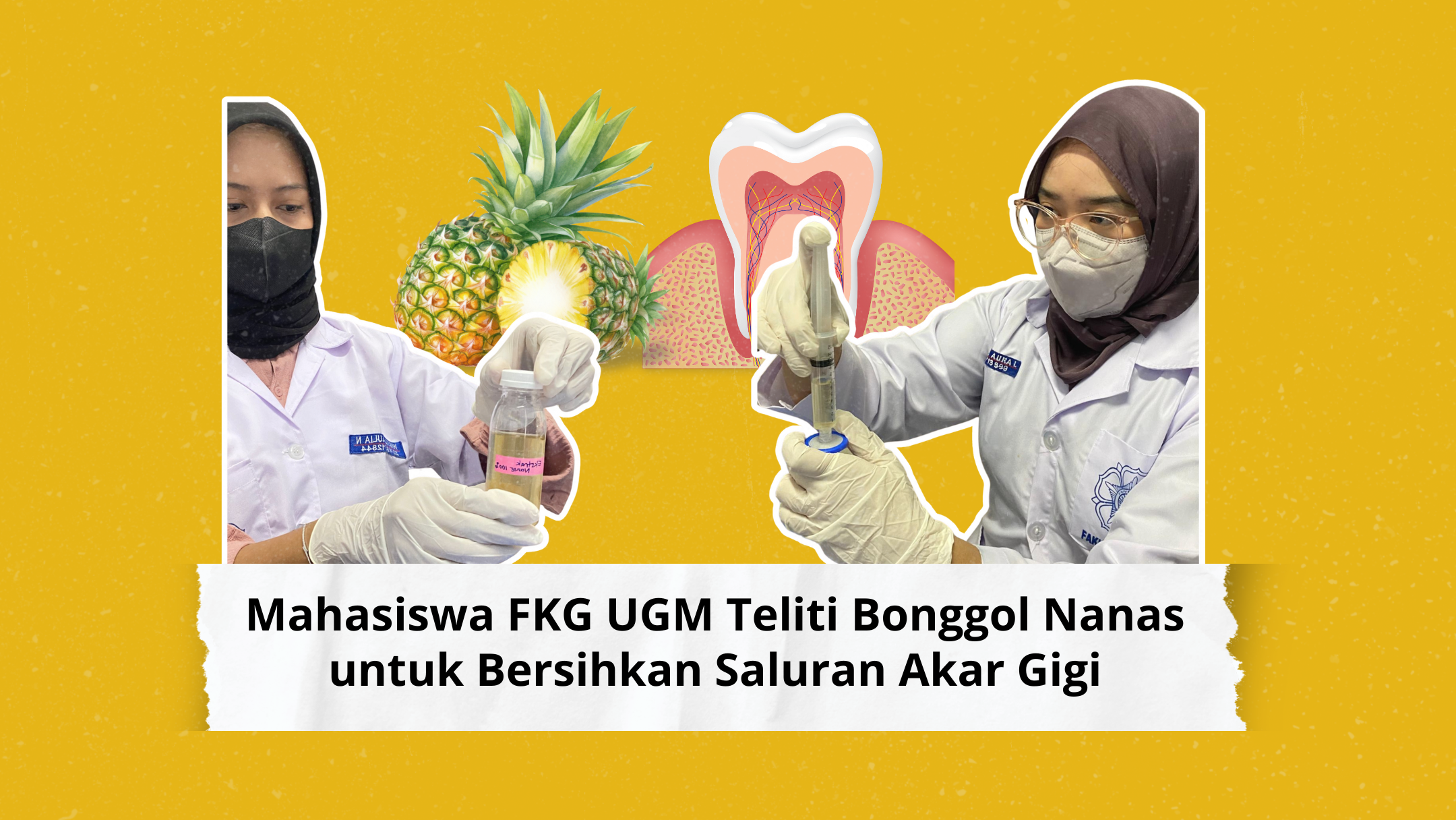The Research Team of the Exact Science Student Creativity Week (PKM-RE) at the Faculty of Dentistry, Universitas Gadjah Mada (FKG UGM) is exploring the potential of pineapple crowns as an alternative for root canal irrigation. This research aims to offer a safer and more effective solution compared to the conventional use of Sodium hypochlorite in dental root canal treatments
Conventional root canal irrigation involves cleaning the tooth's root canal using special liquids and fine needles. The goal is to remove bacteria and debris that could cause infection, allowing the tooth to heal.
Nadia Ayesha Salsabila and her team, including Laksmi Aristha Bhanuwati, Fidela Desfitria Zahra, Wigya Aulia Nastiti, and Alma Aura Iryandari, under the supervision of Prof. Dr. drg. Juni Handajani, M.Kes, Ph.D., are investigating the potential of bromelain found in pineapple crowns on pulp cell viability and confluency through toxicity tests, viability tests, and antibacterial tests against E. faecalis biofilm inhibition.
“Our research results show that bromelain is not toxic to pulp cells, as indicated by the increased cell viability with higher concentrations. Antibiofilm activity also increased with each concentration,” said Alma.
Dental caries remains a prevalent issue in Indonesia. According to the Ministry of Health, the prevalence of caries in Indonesia ranges from 60% to 80% of the total population. Untreated caries can progress to pulp disease, requiring endodontic treatments such as pulpotomy. Pulpotomy involves removing the damaged part of the tooth’s pulp and sealing it with medication.
“Root canal irrigation is a crucial step in ensuring the success of pulpotomy. However, commonly used irrigants like Sodium hypochlorite, can have negative effects on soft tissues if used at high concentrations or without caution,” Nadia explained on Friday, 26 July.
Bromelain, an enzyme found throughout the pineapple plant, is considered a potential substitute Sodium hypochlorite. Bromelain is known for its pharmacological activities such as broad-spectrum antibacterial, anti-inflammatory, and anticancer effects. Approximately 70% of the pineapple plant is considered unused, including the pineapple crown.
She added, “Indonesia is the third-largest pineapple producer in Southeast Asia. We hope to utilize this potential into a safe and easily developed pharmacological material.” Utilizing these residues could be a breakthrough in efficiency and sustainability.
The team hopes that this research can be further developed to support the use of bromelain as an alternative to Sodium hypochlorite, providing a new option for medical practitioners and laying the groundwork for future research. This research aligns with and supports the values of Sustainable Development Goals (SDGs) particularly SDG 3 (Good Health and Well-Being).
Author: Pram | Editor: Fajar Budi H. | Visual: Fajar Budi H.
Photo: PKM Team

